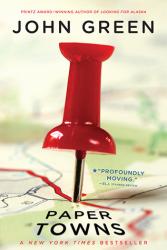
Paper Towns by John Green is a thrilling, coming-of-age mystery. Readers get to solve the mystery along with the main character. The book provides interesting insights and a sense of grounded wonder and sparks deep thought about our own reality of life and inevitable death. It follows senior Quentin Jacobsen on a wild journey with dreamy but unattainable childhood friend later drifted away, Margo Roth Spiegelman. The mystery that surrounds her the next day is sure to excite readers with fear but also curiosity as they journey with Quentin inside his mind on the sublime adventure to uncover her whereabouts. On many occasions I found myself unable to stop reading even though the book took me into the late hours of the night. I would definitely recommend this book for anyone looking for an exciting venture into the unknown!
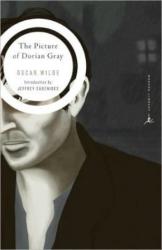
As a lover of writing, poetry, and pretentious philosophical tangents on the measurements of good art, I was bound to enjoy Wilde's only novel. The Picture of Dorian Gray is a beautiful tapestry of tragic corruption and its devastating effects. Albeit at times Lord Henry seems to ramble on about entirely uninteresting subjects, the overall experience of the book is short and sweet. The prose is flowery and elegant; the interactions between characters are brief but natural. Major character development occurs off-screen, which was disappointing, but within 160 pages one can only fit so much. Ultimately, I greatly enjoyed the ride, and The Picture of Dorian Gray has cemented itself as one of my favorites.
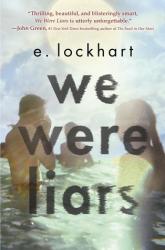
We Were Liars is a mysterious young adult novel about a wealthy family who spends every summer on their private island. The story focuses on the main character, Cadence. After Cadence suffers a head injury during one of the summers, she cannot remember almost anything from that trip to the island. The next summer things are very different and Cadence has to try and remember why.
This book is quite a page-turner. As Cadence slowly remembers more and more details of the mysterious summer when she suffered her head injury, it is nearly impossible to put the book down. However, not all page-turners are necessarily great books. The story of We Were Liars may have been intriguing, but the content was not very substantial. There didn’t really seem to be any morals, and if there were, they weren’t very clear. Things just happened throughout the story, and although it was a mystery, nothing was truly deep or thought-provoking
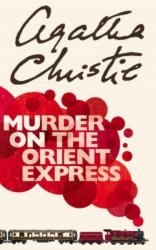
Murder on the Orient Express is a compelling Christie mystery. The book is steady and methodical: after the initial inciting incident, each of the passengers are questioned in order. Then, the evidence is reviewed and the conclusion comes easily to the detective. This novel was a straightforward, easy read, but I found it was better enjoyed by just sitting back and reading. Formulating theories, from the perspective of the reader, is relatively difficult due to key details being under developed when first introduced in the book. Therefore, the detective is better informed than the reader throughout the mystery, which took away some of the intrigue for me. Ultimately, however, the ending was satisfying, and Murder on the Orient Express is a well-written, captivating read.
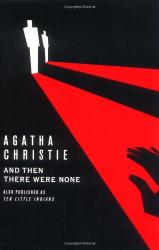
Any fan of mysteries should read And Then There Were None because it is such a wonderfully refreshing book. It is understandable why the book continues to have an impact decades after its release. Following And Then There Were None is not that difficult. Yes, it's a mystery, so pay attention (or at least keep track of who's passing and when), but the book doesn't aim to mislead its readers with unusual text. Guilt and justice are two of And Then There Were None's themes. Every visitor taken to the island is charged with an unfounded murder. As the death toll climbs, visitors struggle in various ways with their own personal emotions of guilt. Justice Wargrave's confession clarifies the notion of justice. Those who loved And There Were None like me should read more of Agatha Christie's work or if you want to read a book similar to And Then There Were None I recommend The Guest List by Lucy Foley. Overall, I loved Agatha Christie's novel And Then There Were None because of how it always kept readers on the edge.
Grade: 8th
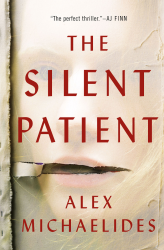
Initially, the premise of this book caught my attention: a psychotherapist sees a patient who murdered her husband years ago (as revealed in the opening line) and has not spoken since. Without spoilers, the story is told in a fascinating way, and Michaelides makes the most of his creative freedom in the medium of novels. Right after I finished reading, I thought the book perfect for what it sought out to do; however, upon further reflection, I feel it missed the spark that makes a good book. Yes, the story was interesting and the flow of events was steady, but by the last third I felt there wasn't enough struggle or buildup to make the progress with Alicia impressive. The novel told two stories simultaneously (the one of Theo's wife and the one of his patient), which was a great artistic choice, but I think that left each individual plotline underdeveloped in the 300 page novel. The Silent Patient is well-written, organized, and unsettling. Although I struggle to grasp the greater message behind the nuanced story Michaelides told, I definitely enjoyed reading it.
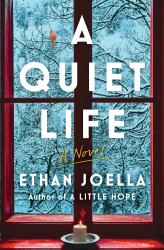
A Quiet Life by Ethan Joella is an emotional, heartwarming story about human connection. Joella’s story tackles grief and loss, all the while remaining light-hearted and hopeful. A Quiet Life takes on the perspective of three different people, all struggling with their own hardships and trials. Chuck, an elderly man mourning the death of his wife, must decide whether or not he should venture back to their vacation home for their yearly trip. The pain is too much to bear, and imagining himself being there alone is heart wrenching. Ella, a single mother working a newspaper job, is trying desperately to find her missing daughter. Kirsten works at an animal rescue and tries her best to serve the community. However, after the quick and tragic murder of her father at a convenience store, Kirsten can hardly find the light in life again. A Quiet Life shows the intricacies and hardships that come with loss, all the while connecting every missing piece, and showing us how togetherness is what keeps us afloat.
(Reviewer Grade: 12)
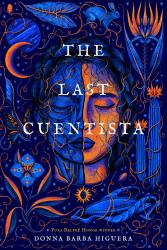
Donna Barba Higuera takes on a futuristic dystopian space adventure in her story The Last Cuentista. A young, curious girl named Petra lives in a distant timeline on Earth, where scientists are helplessly searching for a way to avoid certain doom. While in the face of death, Preta leans on her abuelita’s stories, which are rich and full of life. Yet, as the clock starts ticking and Petra is forced to leave it all behind, the one thing she keeps with her is the power of tales. The Last Cuentista is a brilliantly written novel depicting a world in space, where the connection and true heart of human-kind is severed. Petra shows the reader what true perseverance is, and reminds us all of what it means to truly be human.
(Reviewer Grade: 12)
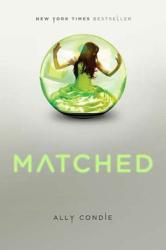
This is a wonderful, amazing, trilling book! I love the descriptive language and the way its laid out, you never want to stop reading it. it makes you want more. if you read this book, which you should, you need to read the other books as well. It’s a thought-provoking, engaging dystopian novel with the stereotypical love triangle at the center. Condie does a good job setting the scene and the overall vibe. However, I was very disappointed when Cassia burned her grandfather's poems. If she doesn't have the courage to keep a piece of paper, that has been in her family for generations, how will she have the strength to do anything? This is a great book, the characters are developed well and the story is intriguing. (Spoiler) The only thing I would change is Xander at the end, where he lets Cassia go. I know that he is understanding and all, but I think it would be more appropriate for him to want Cassia to stay with him forever, and ever since the pill incident with Ky, he'd like to follow the rules. I really like the storyline and the fact that Cassia is different and doesn’t fit into what people expect of her. Also, I think she used too much show not tell as I don’t see why Cassia likes Ky or how on earth Xander would be a perfect match. I feel like she left the important bits out and kept what wasn’t interesting Other than the few complaints I have, Matched is a book that I would recommend to any Romance or Dystopian fans.
Reviewer's Grade: 8
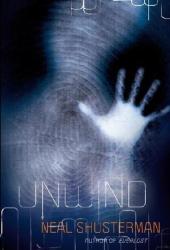
Unwind has a fresh, fascinating, and frankly genius premise: after a war is fought on abortion, the U.S. government passes legislature allowing parents to sign an order to "unwind" their teenagers. The teen is then taken apart, and each body part is used for transplants. Like any good dystopia, the concept poses a number of thought-provoking questions that the book tries to address, like "do we have souls?" or "what makes a person themself?" or "how scary is it to be unwound, really?", and it answers them with varying degrees of success. Unwind is an excellent conversation starter; it is riddled with nuanced philosophical ideas which are, at times, uniquely terrifying. However, that's where the problems with Unwind lie: the intrigue doesn't stretch much farther than the initial concepts. Shusterman is talented at worldbuilding, and every new detail of Unwind's dystopia is interesting, inspired, absurd, and simultaneously realistic. Unfortunately, the story fails to make use of this inherent intrigue. Much of the reader's time is spent spectating characters as they shuttle from one location to another. They have minimal development, or, when they do have development, it is sudden and drastic. Shusterman builds a vivid universe only to guide readers through the dullest corners. Unwind is worth a read for the conversation, not the story. If a reader expects the average teenage dystopia, they should pick another book; but if they want fresh perspectives, creative horror, and possibly a hint of existential dread, Unwind is the perfect read.
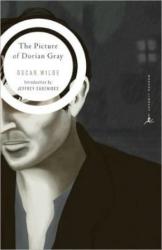
At first, I only picked this book as a classic for school, but I quickly learned it's a classic for a reason. I'd known of the general plot of the novel where a portrait reveals the ugliness of the inside of a man while he remains young, but the way it's written and described makes the full story. The story starts with painter Basil basically putting so much work and devotion into a portrait of Dorian Gray, the painting comes to life. Dorian wishes to stay forever young, and the painting reflects his evilness (vanity, etc.). I enjoyed the sense of mysticism and how everything connects to the theme of appearances are not what they seem. Dorian looks beautiful, but his actions (the thing that makes a person) are grotesque and horrid. The gothic fiction genre is reflected by the dark evilness of Dorian's actions and the magic of the portrait. This book is my favorite class I read this year and the plot surprised me with the characters always returning and a sense of incompletedness when characters leave. If you're looking for a medium-read classic with thought-provoking ideas, then this is for you!
Reviewer Grade 12
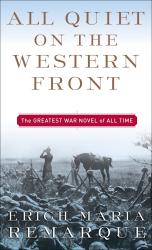
All Quiet on the Western Front by Erich Maria Remarque can solely be described as an ingenious masterpiece. The book, a historical fiction novel, was written in 1928 about German soldiers' experiences during World War I; Remarque used his experiences as a german soldier to accurately portray the terror of war. The main characters, Paul Bäumer, Albert Kropp, Franz Müller, and Ludwig Behm, are remarkably realistic and, throughout the book, go through changes caused by the nature of war, essentially turned into humans run by animal instincts. Throughout the book, Remarque ripes away any possible notion of romantic ideas relating to war and perfectly encapsulates the true terror of war. Overall, I wholeheartedly believe that everyone should read this masterpiece.
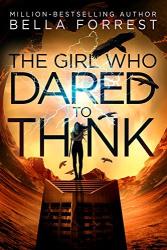
The first book in this dystopian series, The Girl Who Dared To Think takes readers on an adventure to a post apocalyptic world where one girl struggles to fit in. Liana Castell has never fit in with her parents or instructors expectations. Living in the Tower, a large glass home for all those left, requires citizens to wear a band displaying a ranking. The most loyal to the tower receive number close to a 10, while those at 3 or lower receive treatment and many disappear. When Liana meets a man who has a ranking of a ten, though obviously is not deserving of it, she fights to find him and uncover the deep secrets of the Tower.
The book will keep you guessing the whole way through and leave you wanting to read the next.

Critically acclaimed author Madline Miller takes on Greek mythology in a way never done before. In her novel Circe, a lonely child, born from the sun god Helios and a nymph mother, tries to find her way within a world where she does not quite fit. Her father is too powerful to relate to, and her mother wishes Circe had not been born. Not to mention, Circe’s siblings dislike her greatly, and make her life insufferable. It is only when her father, Helios, sends her away to a secluded island where she cannot leave, that she finds the missing piece she has been looking for all her life. Filled with secret romances, magic, sea monsters, mysterious sailors, and man-pigs, Circe is a novel that will wreck your heart and leave you angry for justice. Her isolation is familiar to us all, and reminds us of the importance of loving ourselves. This is a must read!
Reviewer - Grade 12
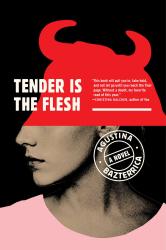
The book is about a world where a virus made all animals poisonous of people so the world turns to cannibalism to survive. The main character is Marcos who works in a meat processing plant to ensure his family is taken care off. It describes this daily work, slowly building how the world adapted. He's given a gift of live meat. Marcos seemed to look down and seemed to be the only one who saw something wrong with this. However a the end of the book the last few pages changed everything you know about Marcos, you see him in a different light. It feels like it came out of nowhere but, slowly looking through you see it building up.
The book is hard to put down and it explores the darker side of humans abilities to adapt. It makes you think and leaves you wondering about the world that Marcos built for himself afterwards.
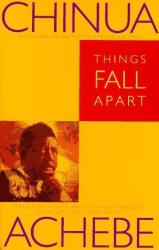
Things Fall Apart by Chinua Achebe is considered a literary masterpiece, with its unique perspective on colonization that isn't always told. Okonkwo, the main character with three wives and the memorable reputation of a great wrestler, has a great fear of losing any part of this status and ending up like his father. This fear is realized when Okonkwo is exiled (for an ironic crime) and returns to find his community overrun by Christian missionaries. They bring a seemingly-noble message of salvation, but it is only a matter of time before blood is spilt. Learning about Ibo culture through this book was a really cool experience, so I don't regret reading it. But, why is it that "classics" always have to include raging misogyny? Okonkwo almost constantly beat his wives, and despite this technically being historically accurate, I found the repetitiveness to be unnecessary. Despite this, Achebe's use of language, such as proverbs to create a story that feels like a fable, was something that I haven't seen before. Gaining a new perspective throughout reading Things Fall Apart was an experience I think everyone should have.
Grade 12
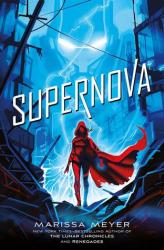
If there's one thing I appreciate about Marissa Meyer's writing, it's that she has a conclusive ending in three to four books. The Lunar Chronicles wrapped up everything nice and tight in four books, and the Renegades trilogy does the same thing with the last book, Supernova. After all, I enjoy reading a tight set of three or four books instead of a meandering series with dozens of entries. That being said, I wasn't a fan of the epilogue in this book, but at least everything else concluded in a way that made sense for the narrative arc of the whole trilogy.
In the first two books of the Renegades trilogy, I had some assumptions about the big questions Meyer presented to the reader. Who really killed Adrian's mom? How would Nova eventually be found out? Who is Phobia? While Archenemies really hit it out of the park by introducing the moral gray area of super-powered humans, I was a little disappointed with how this book answered the remaining big questions of the trilogy. At least Meyer actually answered them instead of letting them remain mysterious.
While there wasn't a lot of evidence to back up my theory, I thought that Adrian's mom would have died accidentally after being exposed to Max's power. That's what made sense to me. However, the canon answer for her death definitely works and has a much more meaningful explanation despite it being slightly paradoxical and almost a non sequitur in my opinion. In the end, Supernova completes a fantastic series that asks hard questions about superheroes that other series like Invincible and The Boys have managed to do in their own right.
Answering the questions of the Renegades trilogy while also faltering in the epilogue, I give Supernova 4.0 stars out of 5.
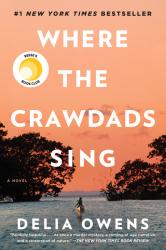
Please believe me when I say, this book deserves the hype. It is genuinely one of the best books I have ever read. The storyline was unique, the pacing was perfect, and the characters were so interesting. Kya is a girl living in the marshlands of South Carolina who is abandoned by her family at a very young age. The book follows her journey to survive, using nature's resources and a few memorable lessons from her mother to become a strong and capable woman. Despite this accomplishment, Kya is labeled as an outsider and is linked to a cruel murder, whose ruling will determine if she will ever grow beyond the constraints of others' opinions. Kya is a character with much perseverance, and her gratitude for the simplest of things is a lesson to take to heart. The friends she meets along the way are also patient and caring. The jump between timelines kept things interesting, and the two dates finally colliding into one made it impossible to put the book down. It is worth reading this book for the themes of child psychology, social rejection, appreciation for nature, and much more.
Grade 12
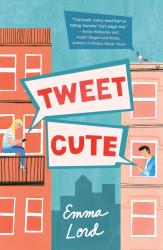
Finally! Two main characters with different, yet well-developed, personalities! I really loved Pepper and Jack, both of whom struggle with the pressures of running the social media side of their family businesses. The two are considered enemies, but fall in love on an anonymous texting app. Their busy lives with balancing swim team and good grades made each chapter entertaining. Their banter throughout the book was great, sarcastic and witty without being mean. I was kind of put off at the beginning because Jack and Pepper realized they were both fighting on Twitter very quickly, so I wondered what the rest of the book would be if the main plot was already spoiled. However, they had been clueless on more platforms than one! If contemporary enemies-to-lovers books intrigue you, this one will not disappoint.
Grade 12
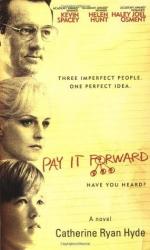
A twelve-year-old boy in a small California town named Trevor McKinney accepts his teacher's challenge to earn extra credit by coming up with and creating a plan to improve the world in the lovely and inspiring book Pay It Forward. When others hear about Trevor's idea, they immediately dismiss it because it is so simple and naive. Even Trevor starts to have second thoughts when his "pay it forward" scheme seems to fail due to a mix of bad luck and the worst aspects of human nature. This book is incredibly realistic, enjoyable, and motivating. The main characters all have distinct personalities that set them apart from one another. As you read on, you can clearly visualize the characters in your head. It's difficult to keep reading this book without taking a break. There is plenty of drama, action, and romance in the book. I adore that this book has a deep significance behind its title, Pay it Forward. This was chosen by the American Library Association for its list of the Best Books for Young Adults, and it has been distributed in more than 30 countries by being translated into more than two dozen different languages. This is a very powerful, moving story. At first, I found the style a bit difficult to read as it kept jumping around to different viewpoints. This was a different read for me at first. It had characters that were coming into the story, and didn't know how they fit in. Later it made sense Once I figured the actors read smoother.
Reviewer’s Grade 8th





 We are experiencing recent outages to the online catalog, PPLD mobile app, and Libby/OverDrive. Click here to learn more.
We are experiencing recent outages to the online catalog, PPLD mobile app, and Libby/OverDrive. Click here to learn more.